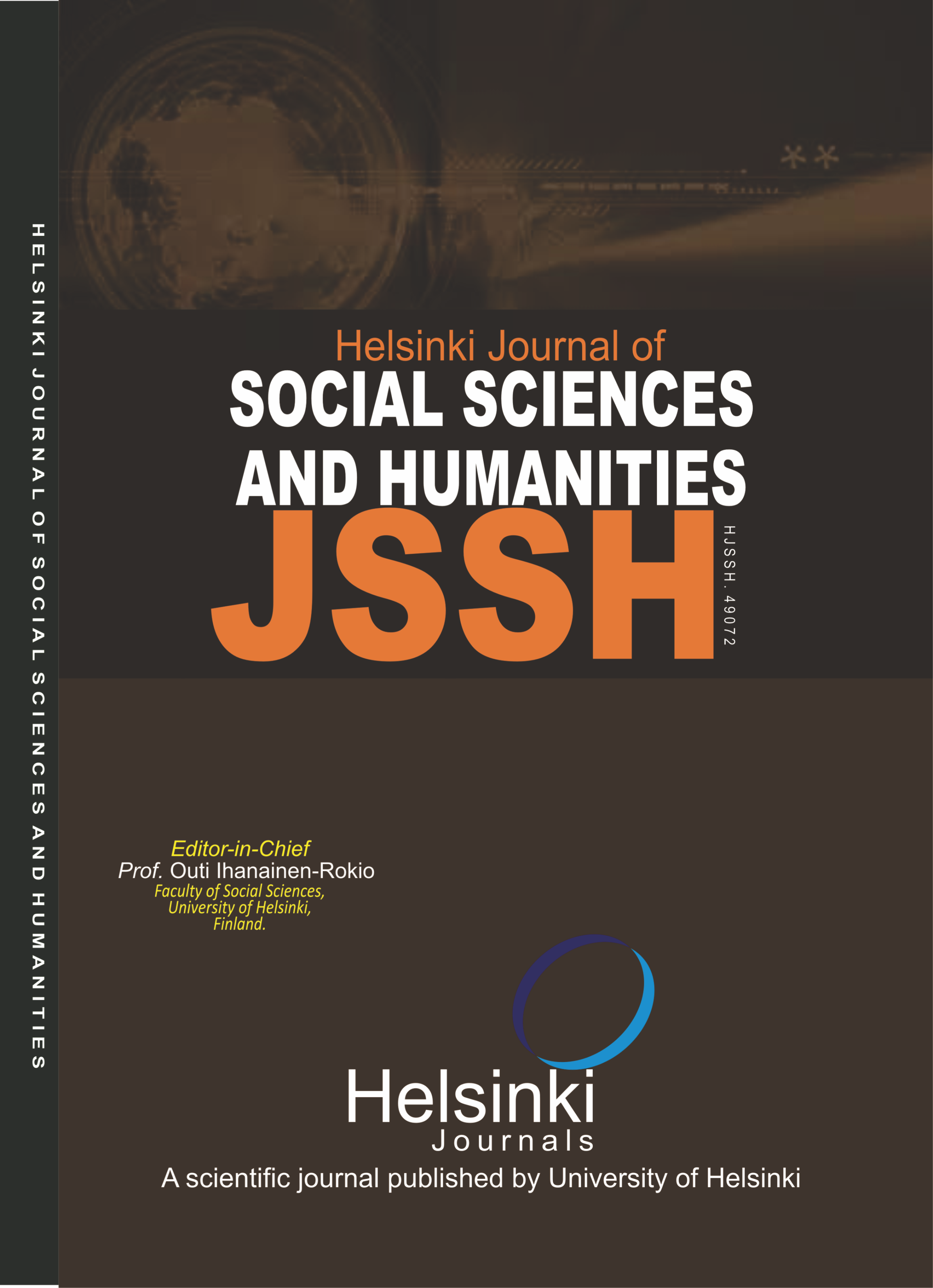HELSINKI JOURNAL OF SOCIAL SCIENCES AND HUMANITIES (HJSSH)
IMPACT OF EXCHANGE RATE MOVEMENTS AND INFLATION IN NIGERIA
E-ISSN: 7764-9221
P-ISSN: 3442-3567
DOI: https://iigdpublishers.com/article/716
The research analyzed the effects of exchange rate fluctuations and inflation in Nigeria based on annual time series data of the periods 1981-2022. In order to meet this aim, the research design used was ex-post facto research design, secondary data were used as the source of data in the study based on CBN Statistical Bulletin and the study specifically applies the Autoregressive Distributive Lag (ARDL) method to analyze the time series data covering the period between January 1981 and December 2022 to determine the relationship between Real Gross Domestic Product, inflation expectation, Money Supply, Fiscal Deficit, Inflation Rate and Exchange Rate. To establish the relationship between the variables in the study, study used Augmented Dickey Fuller test to know whether there is unit root or not, Breusch-Godfrey Serial Correlation LM test to know whether there is serial correlation or not and ARDL bound test to know that there is co-integration or not. The stationarity test results depicted that the variables are of mixed order of integration whereas the result of co-integration depicted that there are long run relationship between variables. As it was found, Real Gross Domestic Product (RGDP) and exchange rate (EXR) were positively and significantly influencing inflation, which indicated that the exchange rate fluctuations and the growth in RGDP are also the factors that influence inflation in Nigeria. In the meantime, in relation to the capacity of inflation to forecast the explanatory variables, it was found out that exchange rate does not Granger cause in inflation rate. The hypothesis is significant in that the Exchange rate influences inflation in the short run as indicated by the test of the hypothesis. It was on the basis of the findings that the study suggested that the central bank should keep the money supply growth in check so that inflation is kept to the bare minimum.
Imoh Kingsley Ikpe PhD
Adeniji, S. (2013). Exchange Rate Volatility and Inflation Upturn in Nigeria: Testing for Vector Error Correction Model.https://www.researchgate.net/deref/http%3A%2F%2Fmpra.ub.unimuenchen.de%2F52062%2F.
Aidi, H. O, Suleiman, H. I. & Saidu, I. A. (2018). Exchange Rate, Inflation and the Nigerian Balance of Payment. Journal of Economics and Sustainable Development, 9 (3).
Ajao, M. G., & Igbekoyi, E. O. (2013). The Determinants of Real Exchange Rate.
Akpan, E. O., &Atan, J. A., (2012). Effects of exchange rate movements on economic and the Nigerian economic growth. Euro Economica, 35(2), 1-15. Retrieved.
Alavinasab, S. M. (2014). Determinants of Inflation in Iran. International Journal Of Social Science and Management, 1(1), 71-77.
